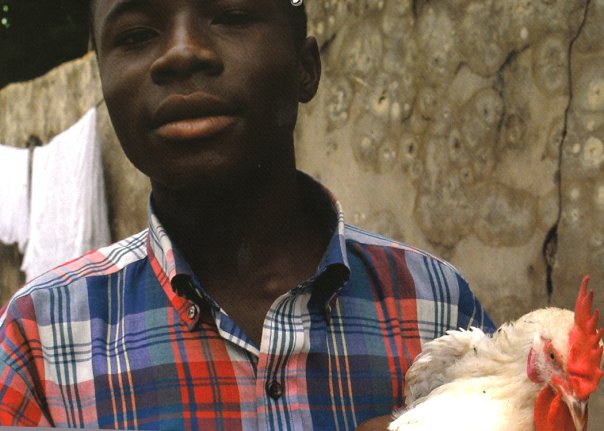The client couldn't believe it. The shift in her sister's behavior was so profound, my client had a good laugh and called to tell me about it.
For months, the relationship between Tamara, my client, and her sister had been tense, ugly. “Evil” – that's how Tamara described her sister to me. They both live together with their Mom, and when Tamara consulted me for Ifa divination, the reading indicated that sacrifice was necessary.

And so I dutifully offered one rooster to Esu, the orisa of the crossroads and opportunity, and one rooster to Ifa, since that's what the reading called for.
A few weeks later, when Tamara called to tell me that things at home had magically turned around for the better, I smiled. I not only felt proud, I felt honored. It also inspired me to go deeper in my studies as an Ifa diviner and priest.
Sacrifice is as old as the hills! It remains an integral part of African healing traditions. It worked in ancient times and it still works today. It's also controversial because the Western world misunderstands it – or pretends not to understand it.
The truth is that every society and culture on earth practices sacrifice in one way or another. Life feeds on life. Some form of life must die so that you can live. Every meal (whether you're a vegetarian or not) is a form of sacrifice. Period!
Sacrifice is an ancient way of redirecting energy to bring about desired change: progress, improved relationships, improved health, better business results, etc. To the ancient African mind, only a fool will ignore the call for sacrifice.
In the book: “The Healing Power of Sacrifice,” Chief Priest Yemi Elebuibon, says: sacrifice is important because (a). It is a means of expressing gratitude to spiritual beings. (b). It is a means of fulfilling a vow. (c). It is used for establishing communication and communion between humankind and spiritual beings. (d). It is used for averting the danger of the divinities and spirits. (e). It is a means of warding off the attack and evil machinations of the enemy. (f). It is a means of purifying a person or a community when a certain taboo has been broken. (g). It prevents or expels epidemics. (h). It strengthens the worshippers against malign influences).”
And in the book, “Of Water and The Spirit,” Malidoma Some says: “The purpose of ritual is to create harmony between the human world and the world of the gods, ancestors , and nature.”
Malidoma also explains how disaster struck home when his father, who had been lured away from his spiritual roots by Christianity, refused to perform an ancient ritual for his twin daughters. “One morning Elizabeth caught a mysterious illness that no one could diagnose. She died at noon. During her funeral Marguerite died while running wild with grief. The funeral intensified. People knew what was going on. Twins don't die on the same day. Pascal, the eldest son, expired two weeks after the funeral of Elizabeth and Marguerite. Nobody knew what killed him. He had been playing with friends and suddenly cried out that he was dying. Julia, the unfortunate mother, died of sorrow during the funeral of her son.”
I've always loved this passage in “Of Water and The Spirit” and used to read it over and over again. It boggled my mind how a series of tragedies could be set in motion by failure to perform a ritual. Luckily, Malidoma's father eventually performed the ritual, but by then so much damage had already been done.
How or why ritual or sacrifice works seems counter-logical to most Westerners. But when the call for sacrifice or ritual shows up in divination readings, I will always advise my clients to comply with it. Just like my ancestors did before me.
Life sometimes has a nasty way of punishing those who refuse to listen!
Now over to you: what are your thoughts on sacrifice (ebo) ritual? What has been your experience? Feel free to comment!
Blessings
James
